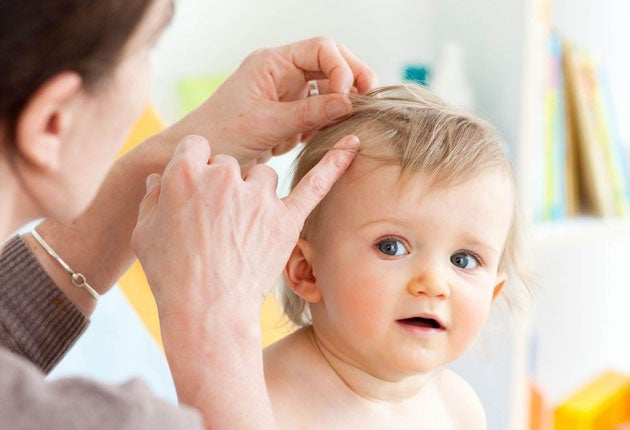Babies given antibiotics are 40 per cent more likely to suffer with eczema, study reveals

Babies who are treated with antibiotics before they reach 12 months old are 40 per cent more likely to develop eczema, a new study has revealed.
The investigation conducted by researchers from the University of Nottingham and the Aberdeen Royal Infirmary also discovered that each additional course of antibiotics increased the risk by another seven per cent.
Researchers reviewed data from 20 previous studies that examined the link between antibiotic exposure before birth and in the baby's first year, and the development of eczema. They also analysed whether the number of antibiotic courses affected the probability of developing the skin condition.
Eczema is an inflammation of the epidermis, resulting in dry, itchy and recurring skin rashes. The condition can be painful and treatment involves managing symptoms with emollients and sometimes steroid creams, as there is no known cure. Diagnosed cases of eczema are increasing annually and in 2009, reported cases of eczema had risen by 40 per cent.
One of the study's authors, Dr Teresa Tsakok of Guy's and St Thomas' NHS Foundation Trust in London, said: “One potential explanation is that broad-spectrum antibiotics alter the gut microflora and that this in turn affects the maturing immune system in a way that promotes allergic disease development.”
However, this increased risk was not found prenatally. The paper, published in the British Journal of Dermatology, also cautioned that the use of antibiotics could have come as a result of eczema related infections.
The paper's senior author, Dr Carsten Flohr of King's College London and Guy's and St Thomas', added: “A better understanding of the complex relationship between antibiotic use and allergic disease is a priority for clinicians and health policymakers alike, as determination of a true link between antibiotic use and eczema would have far-reaching clinical and public health implications."
Join our commenting forum
Join thought-provoking conversations, follow other Independent readers and see their replies
0Comments